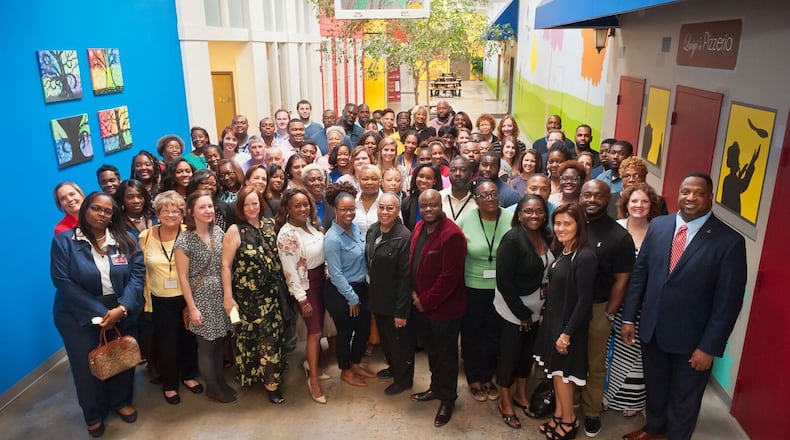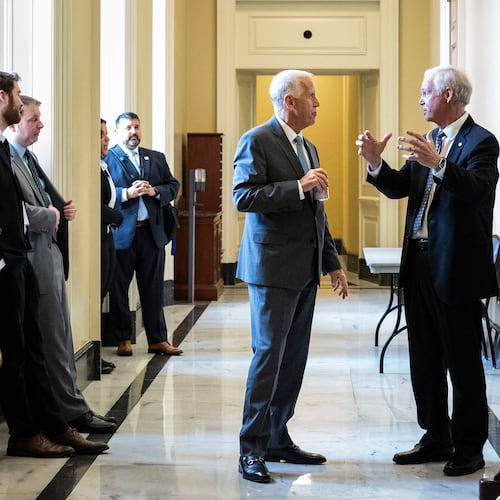In 2014, I adopted a two-year-old girl from the Texas foster care system.
After starting the adoption process, I got some of the strangest questions and reactions to my plans.
A colleague once asked me what breed I was getting? Assuming I was talking about a pet.
Some friends and family members would ask me directly or indirectly why I would do such a thing? Some assumed I was living the best life as a single, career-minded, child-free woman in my early ’40s in Atlanta.
I was by all accounts at a time in my life when my mind should have perhaps been on traveling, dating, shopping, dining out, book clubs and continuing to climb the corporate ladder, work training and all that other fun stuff. Instead I was about to enter the terrible twos, pull-ups, daycare confusion and parent pressure and, even tougher, single-parent pressure.
Everyone had their opinions about my plans. There were people who seemed happier than me and others who raised their brows.
There’s a story behind every adoption. Adoptive parents are all led and motivated by so many different things. November is National Adoption Month and as an adoptive parent I could not let the month go by without sharing a little of my story. I’ve learned that sometimes all people need is to be encouraged by someone else’s story to make a difference in a life.
It’s also a very interesting time coincidentally in the discussion of adoption. The House Republicans’ tax reform plan proposes getting rid of the adoption tax credit which has been around for 20 years.
If this new tax bill passes this year as-is, families that finalize adoptions starting in 2018 wouldn’t have access to the credit.
The proposal has fueled lots of discussion in the adoptive community.
As any adoptive parent can tell you, adoption can be costly. An Adoptive Families Magazine survey of 1,100 families who adopted children from 2012 to 2013 found that, on average, families spent $34,093 on independent adoptions and $39,966 if they went through an agency. These costs have continued to increase as adoptions have come under increasing regulation.
The adoption tax credit helps low- and moderate-income families to be able to afford the high costs of adoptions. The tax credit change is said to stand on claims that the adoption tax credit has not increased the number of adoptions.
Well, of course it hasn’t. That’s not the intent. The credit makes an already tough time and experience easier on the back-end for people who have gone through the process. Please get this in your head. No one goes into the adoption process thinking, oh yes this will be great because we can get a tax credit. If you have that in your mind, let me be the first to tell you that you’re wrong.
Adoption was something that entered my heart in 2009 after a trip to Nairobi. I wanted to bring back every child I’d met who was living in the slums of Kenya. I couldn’t wrap my mind around how children could live in such an impoverished environment and I knew I could offer a better life.
I didn’t start the process right away and learned early on that I simply couldn’t afford international adoption. It wasn’t until I was knocking on the door of age 40 that I got serious about it. I’d heard the process could be long (and it was), so I thought I’d better start before I got too far up in age.
Funny thing is that even after I started the process I still wasn’t so sure what I was doing. All I knew was that I had been blessed and that I should share those blessings with someone else.
So, I did it. My little girl came to me after being placed in foster care at three months old. She had been removed from her home for abuse and neglect. Her parents’ rights had already been terminated by the time I met her. She needed a home, a forever family and I had the heart.
My adoption process was an emotional rollercoaster. Adoption is not for the weak.
It’s tough before, during and after the process. As it should be because it is a process dealing with some of the nation’s and world’s most vulnerable children. Even though my adoption was finalized two years ago I still make use of post-adoption services regularly.
My adoption placement came through Families First, which manages the Georgia Center for Resources and Support (GACRS).
GACRS was designed in 2001 by the Georgia Division of Family and Children Services to assist in strengthening Georgia’s adoptive and foster families. In 1890, Families First started as an orphanage on the Westside of Atlanta and in 1937 became the first licensed adoption agency in the state of Georgia.
Families First just last month named a new CEO. Terry Tucker, an adoptive parent himself, previously led the City of Refuge. I talked to Tucker about new initiatives coming from Families First and what he believed to be the greatest issue facing Georgia as it relates to adoption.
Tucker pointed to two issues. First, there are challenges facing children in foster care outside of metro Atlanta in outlying Georgia counties. They can’t provide the necessary services needed for children in those areas so children end up having to travel many miles to get needed supportive services. The second-biggest issue, he said, is finding adoptive homes, or forever families, for older children, typically ages 11 and up. These children often end up “aging out” of the system still needing services.
Tucker said close to 520 children age out of the foster care system in Georgia every year. “Aging out” is a term that refers to the time a youth leaves the formal system designed to provide services below a certain age. It can be a scary time for a young adult who’s never had a stable home environment.
“It’s hard to explain what happens to a child who stays in the system,” said Tucker. “It damages their soul when they don’t have a place to call a forever home.”
I once told a friend who was contemplating adoption that all it takes is love. If you have that, you can get through adoption and everything that comes with it.
I think Tucker put it best: “There is no greater joy than seeing a life changed by opening up your home to a kid who needs a stable place to live. If someone has space and love and discipline, I would compel them to adopt. I know from personal experience that there is no greater joy.”
If you're thinking about adoption, the first step is simply getting information. And, there's no better time to start than during National Adoption Month. The Georgia Division of Family and Children Services, fostergeorgia.com, has a live chat feature that allows you to speak directly with an agency representative about becoming a foster, adoptive and/or relative caregiver. Agency representatives are available to chat online 9 a.m. to 5 p.m. Monday through Friday.
About the Author
Keep Reading
The Latest
Featured



